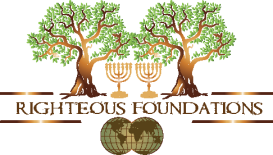The Oral Law And The Written Law.
Judaism has what we call the “Written Law” [this is the 5 books of Moses which you are familiar with] and “The Oral Law.”

What is the Oral Law? Moses received from God much more than what he wrote down. The Oral Law is a commentary on the law and even more laws than what is written. These commentaries and laws were passed down by word of mouth from generation to generation.
Jesus refers to these laws that the Scribes and Pharisees believed where G-d inspired, as teachings and doctrines of man. Isaiah prophesied of the future corruption of Judaism and Yeshua quoted “Their worship of me is made up only of rules taught by men". Isaiah 29:13
After the destruction of the second temple, these Oral Laws, passed from generation to generation, were put in writing, and is now known as the “Talmud.” There is a Jerusalem Talmud and a Babylonian Talmud.
The Oral Law is an interpretation of the Written law (man’s interpretation). For example, the law tells us we can’t work or light a fire on the Shabbat. What do we consider work? Remember Jesus’ disciples were rubbing grain in the fields and that was considered work. Luke 6:1, Mark 2:23, Matthew 12:1.
Today on Fridays, the religious will cut toilet paper because they can’t rip it on Shabbats. They will open a can of Coke on Friday and save it for Saturday because they can’t open a tin on Saturday. They can’t turn on or off a light, pick up a pen to write, pick fruit from a tree or travel in a car. The food must be prepared and be on hot plates.
A head Rabbi’s sermon one Saturday was, “Is it a sin to pick your nose on the Shabbat?” The conclusion was yes, you might pull out a few hairs at the same time. And especially if you roll it in your fingers after it comes out of your nose! They honestly think that if they break the smallest of these rules they anger God.
